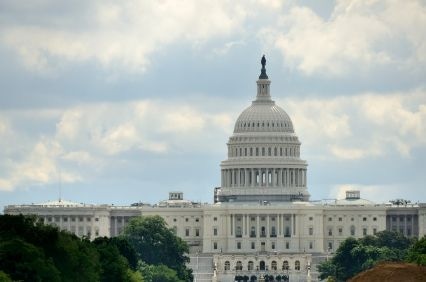USDA inspector general asked to expand swine slaughter rule audit
DeLauro and Merkley seek additional review regarding proposed rule's impact on food safety and animal welfare.
August 5, 2019

Members of Congress have asked that U.S. Department of Agriculture Inspector General Phyllis Fong's office broaden its ongoing review of the agency’s proposed Swine Slaughter Inspection Rule to include food safety and animal welfare concerns. The Office of the Inspector General (OIG) is already conducting an audit of the proposed rule in terms of worker safety.
Rep. Rosa DeLauro (D., Conn.) and Sen. Jeff Merkley (D., Ore.) sent the letter, which details why they believe additional scrutiny is warranted. DeLauro serves as vice chair of the House agriculture appropriations subcommittee, and Merkley serves as the top Democrat on the Senate agriculture appropriations subcommittee, both of which oversee USDA.
“Earlier this summer, the U.S. House of Representatives passed the Fiscal Year 2020 Agriculture Appropriations bill, which included language that would prevent USDA from finalizing, issuing or implementing the rule until OIG has presented findings on all data methods used in crafting the new swine slaughter inspection system and the department has resolved any issues identified,” the members said. “The rule has significant implications for worker protection, food safety and animal welfare, clearly highlighting the need for this additional oversight.”
“According to the Centers for Disease Control & Prevention (CDC), consumption of pork causes over half a million cases of foodborne illness and over 10% of salmonella infections each year in the United States. USDA itself has concluded that higher line speeds result in more pathogen contamination ‘in the absence of compensating measures.’ Similarly, the agency has indicated that having plants ‘fully staffed’ with inspectors improves food safety and that microbiological performance standards have resulted in better control of pathogens like salmonella,” DeLauro and Merkley continued.
However, they said USDA's Food Safety & Inspection Service (FSIS) "has failed to explain why the proposed rule �— despite increasing line speeds, reducing the number of inspectors and eliminating microbiological testing standards — would not hurt food safety. Moreover, the agency has failed to comply with requests for data and other information cited in its analyses of the proposed changes.”
“In support of its claim that ‘the new system is unlikely to result’ in more foodborne illness, FSIS has relied primarily on a risk assessment, entitled “Assessment of the Potential Change in Human Risk of Salmonella Illnesses Associated with Modernizing Inspection of Market Hog Slaughter Establishments,” they added. “FSIS instead waited until after it had published its proposed rule to conduct an external peer review and then published the results of that peer review after the close of the comment period on the proposed rule. The peer review strongly suggests that the risk assessment is invalid, with three of the five reviewers raising fundamental objections.”
“Additionally, we are deeply concerned that USDA failed to adequately assess and consider the impacts of the proposed rule on animal welfare. FSIS cannot credibly argue that decreasing inspector oversight of the sorting of pigs while increasing the volume of animals slaughtered will not undermine animal welfare. Taken together, the available evidence indicates that, if finalized and implemented, USDA’s rule may jeopardize not only worker safety but also public health and animal welfare,” DeLauro and Merkley concluded.
You May Also Like



